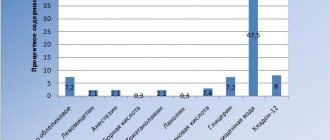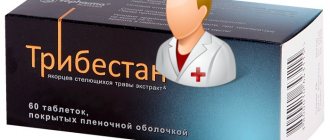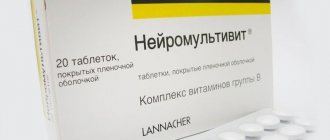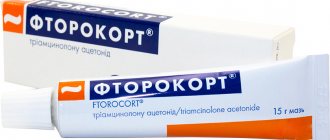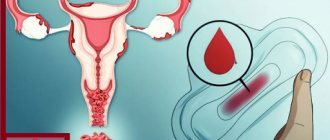Release form of the medicine
As a rule, manufacturers produce the drug Dexalgin in two forms:
- pills;
- solution for injections.
As for other forms of release, such as gel or cream, they do not exist.
The medication is not recommended for long-term use. Dexalgin is prescribed to eliminate severe pain in various locations, but not more than 5 days. After which the patient must be transferred to the use of gentle analgesics orally.
pharmachologic effect
Dexalgin has antipyretic, anti-inflammatory and analgesic properties. The analgesic effect occurs approximately thirty minutes after parenteral administration. As for the duration of the analgesic effect, it is 4 – 8 hours.
After oral administration of Dexalgin, the medicine also begins to act after 30 minutes. After 0.5 hours, the maximum concentration of the drug in the blood is observed. The duration of the analgesic effect is on average 3 – 6 hours.
Properties of Dexalgin
Most doctors prescribe Dexalgin to patients by injection. The product has an effective analgesic effect and can relieve fever.
The drug works as follows. The drug component dexeketoprofen is able to reduce the activity of cycloxygenase, due to which the mass of prostaglandins is noticeably reduced.
As for the duration of action of the drug, after its injection into a muscle or vein, it quickly penetrates throughout the body and has a positive effect within 15 minutes intravenously, and after 30 minutes intramuscularly. After which the effects of pain relief begin, lasting for 8 hours.
In 99% of cases, the active component binds to proteins of biological fluid. Then, the product interacts with hyaluronic acid and is then excreted from the human body by the kidneys. The drug elimination time is approximately up to 3 hours. The only exception is elderly patients. As a rule, an elderly body has a more difficult time coping with the task of eliminating metabolites.
When the need for the drug arises
When does it become necessary to use the drug in question? Dexalgin injections are needed in a situation where there is an urgent need to relieve severe pain. This medication can eliminate even particularly increased pain, such as:
- relief of a person’s condition with kidney colic;
- blocking for post-traumatic pain;
- The drug Dexalgin is recommended for metastases in bone tissue, severe dental pain and neuralgia.
In addition, injections of this remedy are prescribed during the treatment of arthrosis, arthritis, osteochondrosis and other similar degenerative ailments. The drug is also indispensable for inflammatory processes of various etiologies.
How to apply it correctly?
First of all, it is strictly prohibited to prescribe the drug in question independently. Only the attending physician, after examination and diagnosis, will be able to recommend the dosage and draw up a schedule for taking the drug, as well as instruct on the duration of use. It is important to understand that self-medication with this drug can cause irreparable harm to the body.
As for the instructions for use, it recommends administering Dexalgin intravenously or intramuscularly at a dose of 50 mg every 8 or 12 hours, depending on the patient’s condition. If the patient is in serious condition, the drug can be administered every 6 hours. In this case, the daily dose of the active ingredient should not be more than 150 ml.
The method of administering the drug itself should not be rapid. Because the solution is very painful. Well, if it is planned that the drug will be delivered intravenously, it is diluted in a saline solution of glucose or lactate. With this method of administration, the procedure lasts about 30 minutes.
When prescribing Dexalgin in tablet form, the recommended dose per day should not exceed 6 times in the amount of 75 mg of the drug.
Important. If the drug is prescribed to persons with liver or kidney problems, then the tablets are prescribed in a small dosage so that the patient receives no more than 50 mg of the drug per day.
Indications for use
Dexalgin 25 is used to eliminate clinical symptoms of inflammatory processes and pain syndromes of various origins. Experts identify the following indications for prescribing the drug:
- algodismenorrhea - painful menstruation;
- radiculitis;
- neuralgia;
- rheumatoid arthritis;
- arthrosis;
- sciatica;
- osteochondrosis;
- spondyloarthritis.
This non-steroidal anti-inflammatory drug quickly and effectively relieves dental, headache, menstrual, post-operative, and traumatic pain. Prescribed to patients with cancer, when metastasis processes in bone tissue are detected.
The injections have a faster and stronger effect. Their use may be recommended in particularly severe cases, which include the following:
- severe traumatic injuries;
- recent extensive surgical interventions;
- renal colic;
- liver colic.
The medication is used as a component of complex therapy for joint diseases and inflammatory pathologies of the musculoskeletal system.
The use of Dexalgin can be recommended to eliminate febrile syndrome in viral, colds, and infectious diseases in the absence of other antipyretic drugs.
The use of the medicine is recommended when the following clinical symptoms occur:
- Pronounced pain syndrome.
- Dental, spinal, joint, menstrual, muscle, headaches.
- Feverish condition.
- Swelling and hyperemia of the joints.
- Suffered traumatic injuries, sprains, fractures, bruises.
It is not recommended to abuse this drug without a doctor's prescription.
In what cases is Dexalgin not recommended?
Instructions for use describe for which pathologies Dexalgin is not recommended for use, namely:
- with particularly high sensitivity of a person to drugs of non-steroidal origin;
- possible manifestation of an allergy to one of the elements present in the drug;
- ulcer of the duodenum and stomach;
- intestinal bleeding;
- negative changes in the functioning of the liver and kidneys;
- asthma;
- children and adolescents under 12 years of age;
- during pregnancy and breastfeeding;
- diathesis, hemorrhagic origin;
- coronary artery bypass surgery.
For the above diagnoses, the prescription of the medication in question is categorically not recommended. Because extremely negative consequences can arise that are dangerous not only for human health, but also for his life.
In addition, there are a number of contraindications to the use of Dexalgin, however in such situations it can be used strictly under the supervision of a doctor, these are:
- ischemic disease of the cardiac system;
- advanced age of the patient;
- presence of allergies, aggravated type;
- failure of hematopoiesis;
- connective tissue defects.
With the diagnoses described above, the use of the medicine is possible only within the walls of a medical institution under the strict supervision of staff.
Dexalgin - instructions for use, price, reviews and analogues
Dexalgin is a drug that belongs to the group of non-steroidal anti-inflammatory drugs. It has a striking effect in relieving pain, eliminating inflammatory processes in the body and getting rid of fever. It is widely used in various areas of medicine.
Description of the drug
Dexalgin, the instructions for use of which are simple and clear, is a non-steroidal anti-inflammatory drug. It is intended to have the following effects on the human body:
- Anesthesia;
- Elimination of inflammation;
- Antipyretic effect.
It works, like many other drugs, with prostaglandins - its task is to stop their production. After all, it is these substances and components that cause pain and fever. They are also quite capable of causing swelling, which further aggravates the situation.
The drug works quite quickly - so, after just half an hour you can feel the first effect: the condition is relieved and improved. The effect lasts for 4-8 hours, provided that the drug was taken at a dosage of 50 mg. If you use Dexalgin with various opioid-based analgesics, you can reduce the dosage of the latter.
Composition and release form
A drug such as Dexalgin is offered on the market in 2 types:
- Solutions for injections;
- Pills.
Solutions Tablets
In the first case, they talk about a product for intramuscular and intravenous administration, i.e. it is well suited for both injections and IVs. The box contains 1.5, 10 pieces. The solution is colorless and has a characteristic odor of alcohol. Additional components here include sodium chloride, ethanol, sodium hydroxide, etc.
The tablets are film-coated, white, convex, round. Cellulose, glycerol monostearate, starch, etc. are auxiliary in the creation of such a drug.
The active ingredient in this drug is dexketoprofen trometamol.
Injections with this drug have a high analgesic effect. After injection into a muscle or vein, the drug quickly spreads throughout the blood and body.
After 10-45 minutes, you can already observe the maximum concentration of this drug in the body. The drug is excreted from the body by the kidneys. This takes approximately 1-3 hours.
However, it is worth noting that in elderly patients this process may be delayed.
Indications for use of the drug
Dexalgin should be used, like other medications, strictly as prescribed by your doctor. This is despite its wide availability in pharmacies, where it is available without prescription. After all, there are quite clear indications for its use.
Among them:
- Relieving symptoms of toothache;
- Relief from pain that occurs during a regular female cycle;
- Pain in various pathologies of acute and chronic diseases of the musculoskeletal system.
Also included in the appointment are:
- Sciatica and neuralgia;
- Arthritis, including rheumatoid;
- Presence of bone metastases.
Injection use is prescribed in situations where the tablet form does not help.
Contraindications and side effects
Contraindications to taking the drug should also be taken into account. After all, using the drug in cases where it is not allowed, you can seriously harm yourself. Moreover, it is important to understand that the list of contraindications is quite wide. It includes:
- The presence of ulcerative problems in both the stomach and duodenum;
- The presence of bleeding in the digestive system, as well as other types of active bleeding, incl. and intracranial; carrying out anticoagulant therapy;
- Bowel diseases, such as Crohn's disease;
- Severe liver dysfunction;
- Kidney problems;
- Presence of bronchial asthma;
- Heart failure of severe course and nature;
- Pain during coronary artery bypass surgery;
- Problems with coagulation;
- Childhood;
- Individual intolerance to the main active ingredient and hypersensitivity to the components of the drug.
It is also not recommended to use it for epidural administration due to the presence of ethanol in the composition.
The product should be used very carefully when:
- The presence of allergies in a person;
- Problems with hematopoiesis;
- Connective tissue problems;
- Use of other drugs during this period;
- Presence of predisposition to hypovolemia;
- Ischemia;
- Over 65 years of age.
Of course, it is important to consider possible side effects. Not everyone may experience them at all, and they will not always be frequent. However, if at least one disorder condition was identified during clinical trials, it will be included in the list. This means that it is worth studying it carefully in order to understand what the consequences of taking such a remedy may be.
So, the side effects of Dexalgin:
- In the hematopoietic system: anemia rarely appears, neutropenia and thrombocytopenia are very rarely observed;
- In the nervous system: headache, dizziness, sleep problems, increased drowsiness, rarely paresthesia may occur;
- In the senses: infrequently, but blurred vision may occur, tinnitus is a rare symptom;
- In the heart and blood vessels: decreased blood pressure, feeling of heat, redness of the skin, rare symptoms include extrasystole, tachycardia, increased pressure, peripheral edema and thrombophlebitis;
- In the respiratory system: bronchospasms, which occur quite rarely;
- In the digestive system: manifestations of nausea, often accompanied by vomiting, abdominal pain, diarrhea, manifestations of dyspepsia, constipation, a feeling of dryness; erosions and ulcers of the mucous membranes, the development of bleeding and perforation of the walls, jaundice, damage to the liver and pancreas are considered a rare consequence;
- In the urinary system: renal colic, which may occur rarely, nephritis may occur very rarely;
- In the reproductive system: women have problems with the menstrual cycle, men have problems with the prostate gland;
- In bones and muscles: muscle spasms and problems with motor activity in the joints;
- Skin: dermatitis and rash, increased sweating, acne;
- Allergies: urticaria, severe skin reactions, swelling;
- In metabolism: phenomena of hyperglycemia, hypoglycemia;
- Analyzes reveal ketonuria and proteinuria.
Source: https://Sustavi.guru/deksalgin.html
Side effects
When using Dexalgin by injection, some patients may experience negative effects on the organs, namely:
- the appearance of dry mouth, pain in the abdomen, vomiting and nausea. This signals that the functioning of the pancreas, liver or digestive organ is impaired;
- when severe fatigue, changes in sleep and sharp pain in the head appear, it can be judged that the disturbances have affected the nervous system;
- sometimes a person may experience swelling;
- kidney dysfunction;
- changes in menstruation;
- reactions of an allergic nature on the skin;
- increased blood pressure;
- bronchospasms;
- tachycardia and shortness of breath.
If such symptoms appear, the drug should be immediately discontinued and replaced with a more gentle analogue.
Dexalgin 25 tablets: instructions for use, analogues, price
Dexalgin 25 (generic name dexketoprofen) is a non-steroidal anti-inflammatory drug, a derivative of propionic acid.
Manufacturer: Berlin-Chemie AG, Germany.
Pharmacologically, Dexalgin 25 is capable of providing anti-inflammatory, antipyretic, and analgesic effects.
1 tablet of the active substance dexketoprofen trometamol contains 36.9 mg, which corresponds to 25 mg of dexketoprofen;
excipients: MCC – 141.2 mg; corn starch – 49.6 mg; sodium carboxymethyl starch (type A) – 27.1 mg; glyceryl palmitostearate – 5.2 mg; in the film shell: hypromellose – 1.34 mg; titanium dioxide (E171) – 0.36 mg; macrogol 6000 – 0.6 mg; propylene glycol – 0.42 mg
Tablets of 25 mg, round, biconvex, covered with a white film coating, there is a score on both sides, 10 pieces each are placed in blister packs (white, made of PVC film and aluminum foil). One package is placed in a cardboard box.
Pharmacodynamically, the mechanism of action of dexketoprofen is associated with inhibition of prostaglandin synthesis at the level of the enzyme cyclooxygenase types 1 and 2.
The analgesic effect appears 30 minutes after taking the tablet and lasts for 4-6 hours.
In the case of combination therapy with opioid analgesics, dexketoprofen can significantly (up to 30-45%) reduce the need for opioids.
Pharmacokinetically, the maximum concentration of the drug after oral administration can be achieved on average after 30 minutes. Absorption of the substance slows down when the drug is taken simultaneously with food. There is no accumulation of the drug.
Dexalgin is characterized by a high level of binding to plasma proteins (up to 99%). The half-life of distribution is about 22 minutes.
The main route of excretion of dexketoprofen is its conjugation with glucuronic acid, and then excretion through the kidneys. T1/2 of dexketoprofen is 1.65 hours. In elderly patients, T1/2 is prolonged, on average to 2.2 hours, while the overall clearance of the drug decreases.
Mode of application
Dexalgin 25 is taken orally with meals.
The dosage depends on the intensity of the pain syndrome, with the recommended dose for adults being 12.5 mg (1/2 tablet) every 4-6 hours or 25 mg (1 tablet) every 8 hours. The maximum daily dose is 75 mg.
In patients of the older age group, as well as in patients with impaired liver and/or kidney function, use
Dexalgin 25 is started with lower doses, and the maximum daily dose is 50 mg.
It should be remembered that Dexalgin 25 is not intended for long-term therapy; the course of treatment should not exceed 3-5 days.
Side effects
When using Dexalgin 25, various side effects may occur:
- Blurred vision and occasional tinnitus may occur.
- Very rarely, neutropenia and thrombocytopenia are possible.
- Infrequently, headache, dizziness, insomnia, or drowsiness may occur; Paresthesia is rarely possible.
- From the cardiovascular system: infrequently, a feeling of heat and redness of the skin may occur; Extrasystole rarely appears, blood pressure may increase, and cases of tachycardia or decreased blood pressure are very rare.
- From the respiratory system: bradypnea may rarely occur; cases of bronchospasm or shortness of breath are very rare.
- From the gastrointestinal tract: a feeling of nausea or vomiting, dyspepsia and diarrhea, abdominal pain may occur, constipation, flatulence, and dry mouth may occur infrequently. Rarely, erosions and ulcers may occur in the gastrointestinal tract, as well as bleeding from an ulcer or its perforation. Damage to the pancreas is very rare.
- From the liver and biliary tract: rarely, increased activity of liver enzymes may occur and jaundice may appear; very rarely the liver may be affected.
- From the genitourinary system: polyuria may rarely occur; cases of nephritis or nephrotic syndrome are very rare, disturbances in the menstrual cycle in women are rare, and in men, with long-term use, temporary dysfunction of the prostate gland may occur.
- From the musculoskeletal system: rarely, muscle spasms, back pain, and difficulty in the motor function of joints may occur.
- From the skin: infrequently - cases of dermatitis, rash; rarely the appearance of urticaria or acne, as well as sweating; very rarely, cases of severe skin reactions (such as Stevens-Johnson syndrome, Lyell's syndrome), as well as the occurrence of angioedema, allergic dermatitis and photosensitivity are possible.
- Cases of hypo- or hyperglycemia, as well as hypertriglyceridemia, are rare.
- Laboratory findings may (rarely) include ketonuria or proteinuria.
- General disturbances may include (infrequently) fever, fatigue; very rarely there is a possibility of anaphylactic shock and facial swelling.
- Rarely, aseptic meningitis can occur, mainly in patients with systemic lupus erythematosus, as well as mixed connective tissue diseases. Hematological disorders may also appear (purpura, anemia - both aplastic and hemolytic); the likelihood of agranulocytosis and bone marrow hypoplasia is very rare.
Signs of overdose
The recommendations for the use of the drug in question also describe in detail the first signs of an overdose. As a rule, such a side effect can occur due to improper dilution of the medication or its inept use.
If the drug was administered more than the permissible limit, a person may experience the following symptoms:
- Strong headache;
- sharp pain in the abdominal area;
- sleep disorders;
- disorientation in space.
If one of the described signs is identified, the patient should immediately seek help from the appropriate institution. In case of overdose, the patient is prescribed complex therapy or dialysis.
special instructions
Dexalgin should be used with caution by people who have problems with the digestive system. As a rule, injections are given under the strict supervision of the attending physician. If gastric bleeding occurs, the drug must be discontinued immediately.
Almost all anti-inflammatory drugs of non-steroidal origin can slow down the synthesis process and provoke increased bleeding. Therefore, when prescribing the medication in question with other medications that affect the clotting of biological fluid, constant monitoring by the treating doctor is needed.
Dexalgin sometimes causes an increase in the level of nitrogen and creatinine in the plasma of biological fluid. In turn, this can have a negative effect on the genitourinary system, as a result of which interstitial nephritis, nephrotic syndrome and even renal failure develop in the human body.
The use of Dexalgin may have a slight effect on liver parameters. In addition, the drug is able to increase AST and ALT levels in the serum of biological fluid. For this reason, monitoring of the functioning of the liver and kidneys should be carried out regularly. This is especially true for older people.
Important. If there is a strong increase in these indicators, the drug must be discontinued.
It is not uncommon for the main component of the drug to hide signs of infectious diseases. Therefore, if symptoms of a bacterial infection have been identified or a person’s condition has worsened due to taking the drug, he should immediately notify the attending physician.
Each ampoule of Dexalgin contains alcohol in a certain dosage. For this reason, people who have been prescribed the drug should not drive a car or operate other machinery that requires alertness and caution. Also, the drug can greatly affect a person’s psychomotor reaction and reduce the ability to concentrate.
Analogues of the drug
Dexalgin is not suitable for all patients. But due to the fact that the drug in question has analogues, if the patient has side effects or this drug is contraindicated for health reasons, Dexalgin can be replaced with the following drugs:
- Diclofenac;
- Xefocam;
- Novigan;
- Fastum;
- Surgam.
In addition to these drugs, there are a number of medications that have a good analgesic effect. But only a doctor should prescribe them, taking into account the location of the pain and the degree of its intensity.
Contraindications
Patients with:
- severe heart failure;
- erosive and ulcerative lesions of the digestive tract;
- bronchial asthma;
- hypersensitivity to the components of the drug Dexalgin, from which 25 mg tablets and injections can cause side effects;
- hemorrhagic diathesis;
- severe impairment of liver or kidney function.
According to the instructions, Dexalgin is contraindicated for children, pregnant and lactating women, as well as patients taking medications that prevent the formation of blood clots and blood clotting (anticoagulants).
Interaction with other drugs
Dexalgin should be used strictly on the doctor’s recommendation, and when administering injections you should remember the following:
- It is not advisable to dilute the drug in question in the same syringe with dopamine, promethazine and pethidine;
- it is allowed to mix Dexalgin and heparin solution and lidocaine;
- It is not recommended to add promethazine to a diluted solution for infusion;
- the prepared solution for infusion can be combined with the drug theophylline, dopamine and morphine.
Important. If you plan to store ready-made mixed solutions of Dexalgin in plastic containers, then absorption of the active component does not occur with these materials.
Combinations of drugs requiring caution
If there is a need to combine Dexalgin with diuretics, then it should be remembered that the drug in question can provoke renal failure.
The combination of Dexalgin and Methotrexate in a small dosage provokes a decrease in renal clearance. For this reason, the patient should undergo tests every week to monitor the number of cells in the body fluid. If there is the slightest change for the worse in kidney function, even to a small extent, the combination is canceled.
Dexalgin should be combined with any drug with extreme caution and only as prescribed by the attending physician.
Reviews from doctors
According to statistics, Dexalgin is a frequently used drug. Most patients suffering from unbearable pain use Dexalgin injections. Reviews about the medication are most often positive. It really quickly relieves pain for a long time.
However, it is worth emphasizing that the drug also has disadvantages. So the main disadvantages of the product include the following points:
- high price compared to similar products;
- pain during administration of Dexalgin;
- injections have contraindications.

